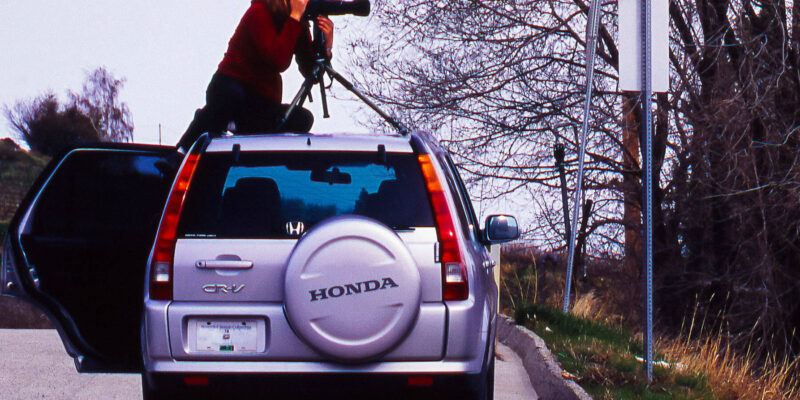Sensing danger, your heart starts pounding. Blood rushes to your extremities to prepare for fast action. Your breath becomes shallow as sweat trickles down the small of your back. With the hair on the back of your head standing at attention, you get ready to protect what you know as safe. You put the phone down and retreat to something more comfortable, like scrolling through social media or grazing on a snack. Even paperwork is better than making that phone call. “Tomorrow… I’ll do it tomorrow…”
When you shrink back to your comfort zone, the short-term feels safe, but new results are elusive. Much of what drives behavior at the edge of your comfort zone is unconscious. This makes understanding what’s holding you back challenging on your own. Many people who seek self awareness engage in personal development experiences looking for a breakthrough.
In my own personal development journey, I’ve had many types of breakthrough experiences. Some were effective and made the point, some were electrifying, and others were just plain silly. One experience – a sweat lodge ceremony in the hills of Arizona – ended with the tragic loss of three lives. In the aftermath, I retreated to the safety of my old comfort zone. For five years, I abandoned all things personal development, including my own coaching practice. My personal journey and my return to coaching two years ago compelled me to consider many aspects of what we call self help.
Challenges with Chasing a Breakthrough and Traditional Self Help
Proponents of traditional self help use manufactured breakthroughs like “mind over matter” exercises to power through the comfort zone. These activities are exciting and can be effective, but there are several challenges with an approach that measures its success by whether or not you have a breakthrough.
- Powering through your comfort zone can work in the short term, but is unsustainable over the course of your lifetime.
- When you get back to your life after a significant breakthrough, your environment pulls you back into what you are trying to outgrow.
- Fast breakthroughs encourage you to ignore the deeper meaning of emotions that trigger the fight or flight response in you.
- People get attached to the thrill of the breakthrough experience and lose touch with the self awareness they are meant to create.
- Manufactured breakthrough experiences can be physically dangerous.
- Most traditional self help is led by a guru figure who orchestrates and is sometimes credited with the breakthrough.
In the traditional self help environment, a breakthrough can become the goal, rather than a step along the journey. “I thought I broke through that already,” is a common self criticism when the unconscious response happens again.
Working with a coach, you don’t try to annihilate your unconscious or physiological response to being outside your comfort zone. You use your life experience to expand your comfort zone and create awareness about your response. Because like it or not, you will experience that feeling again the next time you are stretched!
Clinging to your comfort zone does not work.
Hiding from growth while the rest of the world evolves around you is not your path to personal power. When you retreat inside your comfort zone, it might feel safe now, but it’s a riskier choice in the long term. The stagnant void created by your lack of growth is a recipe for frustration, bitterness and – if you let it go on long enough – depression.
What is normal about your comfort zone?
It’s normal to feel discomfort when you are doing something new, especially when it involves creating results and outcomes that are close to your true heart. When you step into the desire to create something different for you and yours it requires courage and vulnerability.
It’s also normal if your discomfort is be experienced as a physical sensation, like a tightening of your throat or chest. Or it might show up as subtle signs of avoidance – procrastination and distraction.
You are not alone in this experience. It’s a part of being an emotionally healthy human being. The fight or flight response of your parasympathetic nervous system is here to serve you, but it will get stirred up when you do something that makes you feel vulnerable. It’s unhealthy to allow your comfort zone to box you in.
The Magic Just Outside Your Comfort Zone
The best place to work on expanding your comfort zone is just beyond its limit. How far beyond that limit is unique to you and can expand with practice. When you are in a state of healthy growth, the magic of true personal growth happens.
Your Beginner’s Mind can create Beginner’s “Luck”
Can you think of a time in your life when you were new at something and your results exceeded everyone’s expectations, including your own?
I love stories of beginner’s luck because when you dig a little further, there is usually something deeper going on. A beginner doesn’t know the perceived limitations of the way things have always been done, and that can be a huge advantage. Armed with fresh energy a sense of purpose, the beginner’s mind doesn’t focus on imperfection. It sees opportunity.
By allowing yourself to be a beginner, you open yourself up to experimentation. If it’s “just an experiment”, the risk of imperfection is less likely to stop you from striding forward into the unknown.
The only way to be shown what is possible is to get in the ring.
You will never know what you can do better or differently if there is no first time. The only way to be shown what is possible is to get in the ring. While the perfectionist plans and plans and improves and plans, beginners are out there, experimenting and learning from one of the most powerful teachers of all – experience.
I’m not suggesting you take unnecessary risks or jump blindly into the unknown. But your growth strategy needs to include actions that stretch you if your goal is to create new results.
It’s worth the effort to learn to play on the edge of your comfort zone.
One of the reasons I returned to coaching was the undeniable truth that I’m happy when I’m consciously growing, and even more so when I use my experience to help others grow in a safe environment. When you do something new to get new results in your life or business, there might not be a crowd to cheer you, or a medal at the finish line.
You can break free of the need for a manufactured breakthrough. In my experience, nothing orchestrated or manufactured comes close to the satisfaction of answering the call of your inspiration and purpose in your life. The thrill of doing something meaningful and the new vantage point you gain from the experience is a breakthrough in its own right. And nothing can compare to that.



